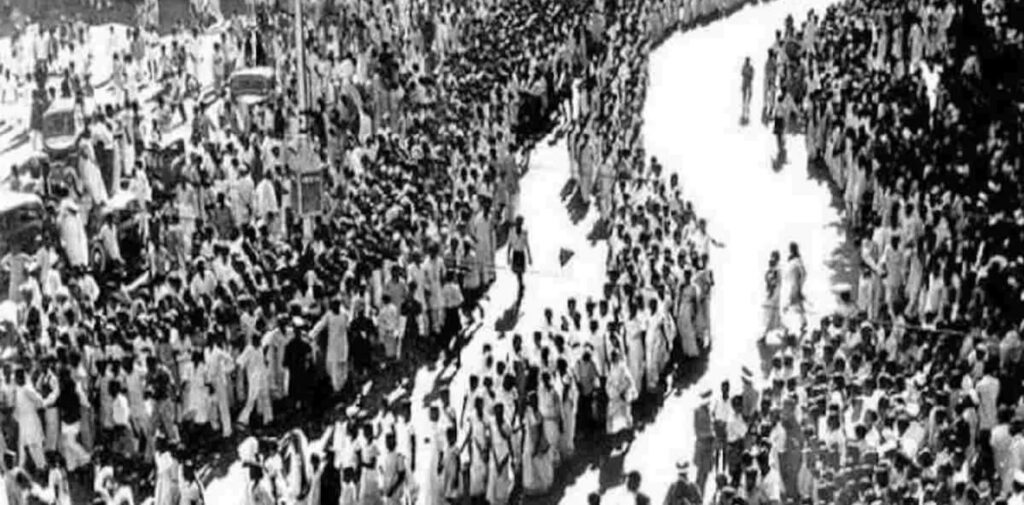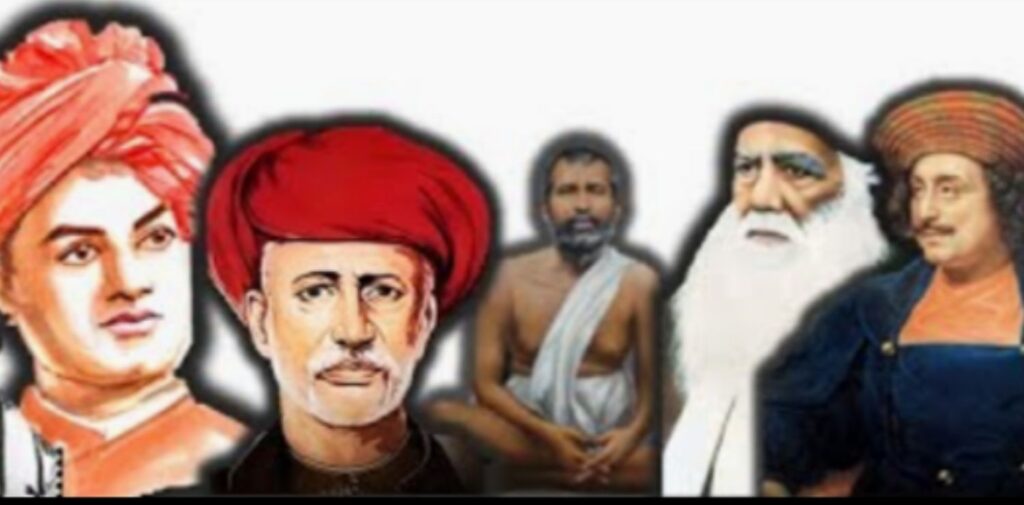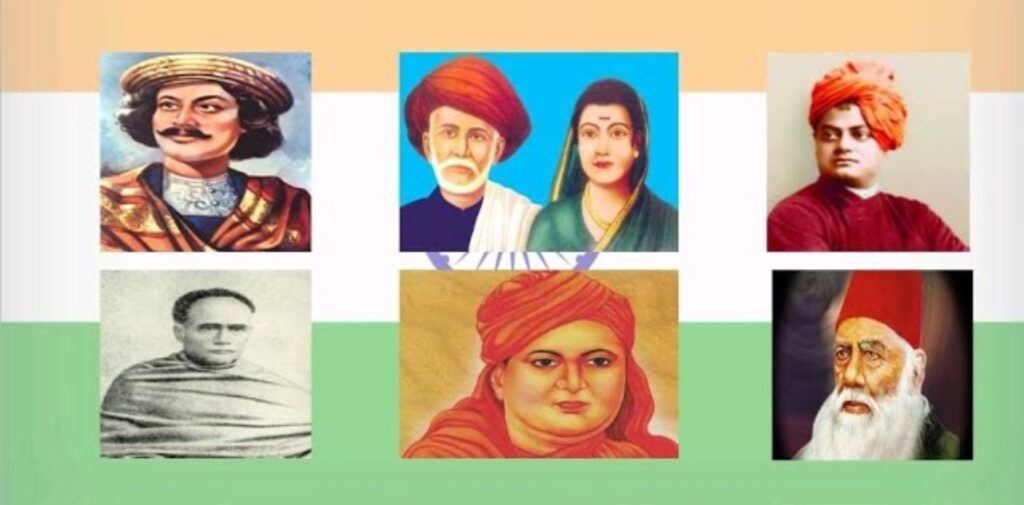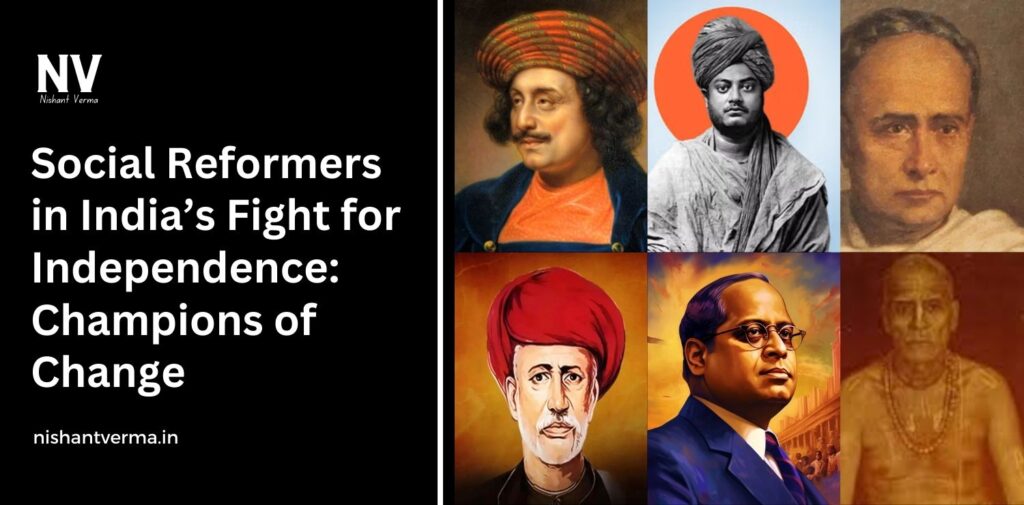India’s struggle for independence was not just about political freedom but also about social change. Along with the leaders who fought for India’s political sovereignty, social reformers played a crucial role in transforming the fabric of Indian society. They aimed to eradicate social evils, uplift marginalized sections of society, and promote education and equality. The contributions of these social reformers were instrumental in shaping the national consciousness and laying the groundwork for an independent and inclusive India.
This article explores the lives and legacies of the social reformers who were pivotal in India’s fight for independence and their lasting impact on Indian society.
The Importance of Social Reform in the Independence Movement
India was a land of deeply rooted social hierarchies and inequalities. The caste system, untouchability, gender discrimination, and lack of education for women were some of the many social injustices prevalent at the time. These issues were often ignored or even perpetuated under British rule, as the colonial government found it convenient to exploit these divisions to maintain control over the population.
However, the vision for an independent India could not be achieved without addressing these social issues. The social reformers recognized that true freedom would only be possible when all sections of society were treated equally and when social justice was a reality for everyone, regardless of caste, religion, or gender.

The Social Reformers Who Shaped India’s National Consciousness
- Raja Ram Mohan Roy: The Father of Modern India: Raja Ram Mohan Roy was one of the earliest and most influential social reformers in India. He believed that the social practices and traditions in India were outdated and needed to be reformed to create a more progressive society. He is best known for his campaign against Sati, the practice of widow burning. In 1829, his efforts led to the banning of Sati by the British government. Roy was also a strong advocate for education and believed in the importance of modern schooling for both men and women. He played a pivotal role in the establishment of the Brahmo Samaj, a reformist religious movement that promoted monotheism and rejected idol worship, caste discrimination, and superstitions. Roy’s ideas laid the foundation for a more rational, scientific, and inclusive India.
- Swami Vivekananda: Reviving Indian Spirituality and Equality: Swami Vivekananda was a great spiritual leader and social reformer who emphasized the importance of self-reliance, tolerance, and unity in society. He was one of the most prominent figures who introduced the philosophy of Vedanta to the world. At the Parliament of the World’s Religions in Chicago in 1893, Vivekananda highlighted the importance of universal brotherhood, peace, and harmony among people of different faiths. Vivekananda worked towards improving the status of women and lower castes in society. He believed that true progress would only occur when society stopped discriminating against people based on caste and gender. He promoted the idea that education was the key to empowering women and eradicating social evils. His message of compassion and unity resonated with the masses, inspiring generations of Indians to work towards social equality.
- Ishwar Chandra Vidyasagar: The Reformer of Bengal: Ishwar Chandra Vidyasagar was a great social reformer, educator, and writer from Bengal. He is remembered for his strong efforts in the promotion of education, especially for women. Vidyasagar fought for the right to education for girls and was instrumental in the establishment of many schools for girls in Bengal. He believed that education was the key to eliminating ignorance and superstitions. Vidyasagar also advocated for the remarriage of widows and worked tirelessly to promote the rights of women. He was a strong supporter of the Hindu Widows’ Remarriage Act of 1856, which legalized the remarriage of Hindu widows, a progressive step in a society where widows were often treated with disdain and ostracized.
- Jyotirao Phule: Championing the Rights of Dalits and Women: Jyotirao Phule was one of the earliest social reformers to challenge the entrenched social hierarchies in India. He was a staunch critic of the caste system and worked towards the upliftment of lower castes, particularly Dalits. He founded the Satyashodhak Samaj (Society of Truth Seekers) in 1873, which aimed to promote education and equality for the marginalized sections of society. Phule believed that women’s education was vital for social change and worked towards the betterment of women by establishing schools for girls, particularly for those from lower castes. He also exposed the exploitation of women in society, particularly those from marginalized communities, and worked for their rights. His contributions to the cause of social equality and education continue to be remembered.
- Dr. B.R. Ambedkar: The Architect of the Indian Constitution: Dr. Bhimrao Ambedkar is one of the most iconic figures in the history of social reform in India. Born into a Dalit family, Ambedkar faced discrimination throughout his early life, but he overcame these obstacles to become a brilliant scholar and a key leader in the fight for the rights of Dalits and other marginalized groups. Ambedkar is best known for his role as the chief architect of the Indian Constitution, which guaranteed equality to all citizens, regardless of caste, creed, or religion. Ambedkar was an outspoken critic of the caste system and worked tirelessly to uplift the untouchables and advocate for their rights. His work led to the Poona Pact of 1932, which sought to improve the political representation and social status of Dalits. He also converted to Buddhism in 1956, along with thousands of his followers, in protest against the social discrimination faced by Hindus.
- Lalita Prasad: Advocate for Women’s Rights: Lalita Prasad was a reformist from the northern part of India who dedicated her life to improving the lives of Indian women. She was particularly passionate about ending the practice of child marriage and advocated for the education of girls. She also supported family planning and health care for women, believing that empowering women with knowledge would lead to a healthier, more progressive society.

Impact of Social Reformers on the Independence Movement
Social reformers played an indispensable role in India’s journey toward independence. While political leaders like Mahatma Gandhi, Jawaharlal Nehru, and Subhas Chandra Bose led the fight for India’s freedom from colonial rule, it was the social reformers who addressed the deep-seated issues that had plagued Indian society for centuries.
These reformers laid the foundation for social unity, which was crucial for the success of the freedom struggle. By challenging the caste system, promoting women’s rights, and demanding equality, they created a more just society that could fight for its rights on the global stage. The ideas and movements led by social reformers formed the moral and ethical backbone of the Indian independence movement.
Their contributions also made it possible for India to emerge as a democratic nation, where the fundamental rights of citizens are protected and where social equality is a key priority.

Conclusion: A Legacy of Social Change
The social reformers of India’s fight for independence were visionaries who not only worked towards India’s political freedom but also toward social liberation. Their tireless efforts against caste discrimination, gender inequality, and social injustice laid the foundation for a free, fair, and inclusive India.
The legacy of these reformers continues to inspire contemporary social movements and plays a crucial role in India’s ongoing quest for equality and justice. They remind us that the fight for freedom is not just about political independence but also about creating a society where everyone has equal opportunities, respect, and dignity.




